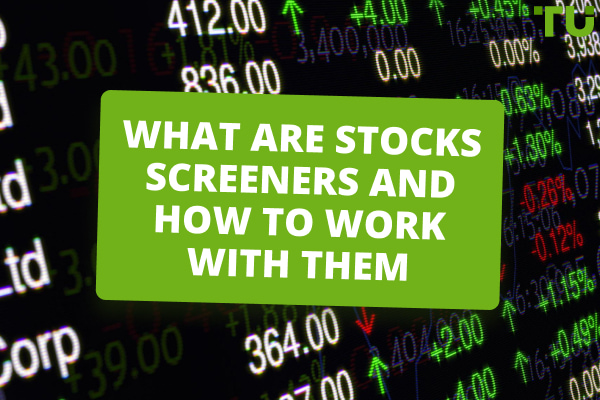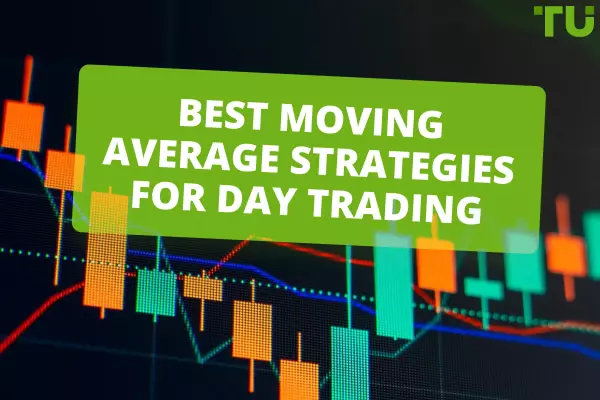The Common Forex Trading Mistakes and How to Avoid Them
Here are a few mistakes you need to avoid whole Forex trading- trading impatience, considering it as a game of chance, impulsive trading, overcommitting on position size, prematurely closing profitable trades, holding on too long on losing trades, neglecting post trade analysis, and overtrading.
Success in the thrilling world of Forex trading frequently balances calculated risks with expensive errors. Avoiding common errors can make a world of difference, regardless of your level of experience trading or whether you're just getting started in the volatile currency markets. Come along on a trip with us as we reveal the keys to success by emphasizing the Forex trading blunders you must never make.
Buckle up as we investigate how even the best-laid trading plans can often fall apart due to hasty actions, overleveraging, and disregarding risk management. To keep you on the road to profitable trading, we'll deconstruct difficult ideas, provide applicable advice, and tell real-world tales. Let's plot a course for cleverer tactics and higher financial results in the dynamic world of Forex trading.
Do you want to start trading Forex? Open an account on Roboforex!Mistakes Made Before Opening a Position
Mistake 1- Trading Impatience
One of the most prevalent errors is rushing into trading with the sole intention of making rapid profits. It is critical to realize that Forex trading is not a way to get rich quickly. The secret to success is perseverance and hard effort. Gather adequate evidence that your trading approach is lucrative before even considering establishing a position.
Solution- Create a Trading Plan
Create a planned trading plan to help you overcome your impatience. Outline your approach, risk tolerance, and explicit entry and exit criteria in your plan.
Mistake 2- Treating Trading as a Game of Chance
Many newcomers make the mistake of considering Forex trading as a game of chance. This misunderstanding might lead to rash decisions and large losses. To be successful, you must treat trading as a business, not a game of chance.
Solution- Understand Your Edge
To avoid this trap, take the effort to discover what offers you a competitive advantage. Examine your trading skills and shortcomings. Do you thrive at analyzing technical indicators or fundamental indicators? Build your trading strategy around your advantages once you've identified them.
Mistakes Made During the Opening of a Position
Mistake 1- Impulsive Trading
Opening a transaction without a good reason is a big mistake. Some traders enter the market because they are bored or have unreasonable emotions. Such rash decisions frequently result in losses.
Solution- Stick to Your Trading System
To avoid impulsive trading, strictly follow the signals of your trading system. Based on technical or fundamental research, make decisions and only execute trades when your system delivers unambiguous entry signals.
Mistake 2- Overcommitting on Position Size
Another common mistake is selecting a position size that is greater than your risk tolerance. Even if your analysis is right, trading with a disproportionately large position might result in significant losses.
Solution- Proper Position Sizing
To minimize risk, determine your position size based on your account balance and risk tolerance. You should not put more than 1-2% of your capital at risk in a single trade. Stop-loss orders can also help to limit prospective losses.
Mistakes Made During the Closing of a Position
Mistake 1- Prematurely Closing Profitable Trades
Greed can cause traders to exit winning positions too soon, missing out on prospective rewards. The absence of a well-established evacuation plan is a common source of this problem.
Solution- Implement Take-Profit Orders
Set specified take-profit orders when you initiate a trade to avoid exiting profitable transactions too soon. When the price reaches your chosen profit level, these orders automatically close your position.
Mistake 2- Holding onto Losing Trades
In contrast, some traders struggle to cut their losses and continue to hold losing positions in the hope of a rebound. This type of activity can result in significant capital depletion.
Solution- Use Stop-Loss Orders
Set stop-loss orders whenever you begin a trade to avoid excessive losses. If the price swings against you, these orders will automatically exit, limiting your potential losses.
Mistakes Made After Closing a Position
Mistake- Neglecting Post-Trade Analysis
Many traders underestimate the significance of examining their activities, particularly their blunders. It is difficult to progress as a trader without introspection.
Solution- Maintain a Trading Diary
Keep a detailed trading diary to handle this issue. You should keep a record of every trade you make, including entry and exit locations, the reasoning behind your choices, and your feelings while making the transaction. Finding improvement opportunities will be easier for you if you regularly review your journal.
Not Creating a Trading Plan
Mistake- Overtrading
Excessive trading, or overtrading, is a mistake that can quickly deplete your funds and lead to burnout. It frequently occurs when traders allow their emotions or impatience to control their activities.
Solution- Define Clear Trading Rules
Always track a few markets or a selected number of markets instead of following a track of multiple markets. It will reduce the risk of overtrading and cash burnout. You can stop or reduce trade on the market that didn’t give you desired results.
To accomplish it, establish clear guidelines for entering and ending trades to combat overtrading. Stick to your plan and resist deviating from it out of fear, greed, or boredom. To maintain discipline, consider setting a maximum number of trades each day or week.
Overcoming the Error of Unwillingness to Learn
Unwillingness to learn is a crucial mistake that might stymie your progress as a Forex trader. The Forex market is always changing, and success often hinges on remaining educated and responding to changing circumstances. If you are resistive to learning and improving as a trader, here are some strategies to overcome this barrier:
Adopt Continuous Learning
Recognize that learning in Forex trading is a constant process. Maintain your curiosity and openness to new information. Spend time reading books, taking online courses, and following trustworthy financial news sources to broaden your understanding. The more information you have, the more equipped you will be to make informed decisions.
Keep a Growth Mindset
Adopt a growth mentality, which means you should think you can become smarter and more capable by working hard and learning new things. Accept obstacles and disappointments as opportunities for growth rather than failures. This perspective modification can significantly improve your willingness to learn and persevere in the face of adversity.
Establish Specific Learning Objectives
Set specific and attainable learning objectives. Break down your objectives into manageable, more manageable steps. For example, you could strive to master a new trading method, comprehend a specific technical signal, or enhance your risk management abilities. Setting goals offers your learning experience a feeling of purpose and direction.
Establish a Learning Routine
Consistency is essential for overcoming aversion to learning. Create a learning program that works for you on a daily or weekly basis. Set aside time for studying and practicing. Making learning a habit can help you steadily increase your expertise and confidence.
Seek Mentorship and Direction
Consider finding a mentor or joining a trading community to learn from more experienced traders. Mentoring can provide useful insights, direction, and accountability. Interacting with peers can also help you stay motivated and involved in your studies.
Examine Your Trades
After each trade, objectively examine your decisions and outcomes. Determine areas where you may have made better decisions and learn from your errors. This self-analysis not only aids in enhancing your trading skills but also highlights the significance of lifelong learning.
Best Forex brokers 2024


Conclusion
In conclusion, the methods presented here are useful but do not guarantee success. One explanation for this is because each trader has distinct features and circumstances. They must, therefore, succeed on their own. No one else will execute it.
FAQs
Why do 90% of Forex traders fail?
Most fail because they lack a trade advantage, and even if they do, they frequently struggle to realize it owing to factors such as self-discipline and emotional decision-making.
Is there a secret to trading Forex?
There is no secret to becoming a successful trader. You have to be patient, adaptive, and a quick learner to become successful in Forex trading.
How to trade Forex smartly?
Set defined goals, select the best broker and trading platform, create a consistent process, identify entry and exit points, calculate expectation, handle losses, and conduct weekend analysis.
What is the safest Forex strategy?
Trend trading is a method which could be a suitable method for beginners as there is no method that guarantees success.
Glossary for novice traders
-
1
Broker
A broker is a legal entity or individual that performs as an intermediary when making trades in the financial markets. Private investors cannot trade without a broker, since only brokers can execute trades on the exchanges.
-
2
Trading
Trading involves the act of buying and selling financial assets like stocks, currencies, or commodities with the intention of profiting from market price fluctuations. Traders employ various strategies, analysis techniques, and risk management practices to make informed decisions and optimize their chances of success in the financial markets.
-
3
Forex Trading
Forex trading, short for foreign exchange trading, is the practice of buying and selling currencies in the global foreign exchange market with the aim of profiting from fluctuations in exchange rates. Traders speculate on whether one currency will rise or fall in value relative to another currency and make trading decisions accordingly.
-
4
Overtrading
Overtrading is a phenomenon where a trader executes too many transactions in the market, surpassing their strategy and trading more frequently than planned. It's a common mistake that can lead to financial losses.
-
5
Take-Profit
Take-Profit order is a type of trading order that instructs a broker to close a position once the market reaches a specified profit level.
Team that worked on the article
Upendra Goswami is a full-time digital content creator, marketer, and active investor. As a creator, he loves writing about online trading, blockchain, cryptocurrency, and stock trading.
Dr. BJ Johnson is a PhD in English Language and an editor with over 15 years of experience. He earned his degree in English Language in the U.S and the UK. In 2020, Dr. Johnson joined the Traders Union team. Since then, he has created over 100 exclusive articles and edited over 300 articles of other authors.
Mirjan Hipolito is a journalist and news editor at Traders Union. She is an expert crypto writer with five years of experience in the financial markets. Her specialties are daily market news, price predictions, and Initial Coin Offerings (ICO).









